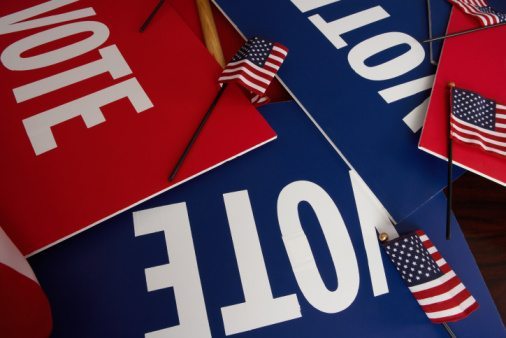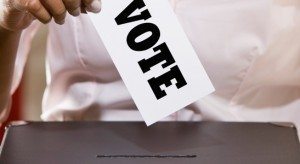A new Pew Research Center analysis shows that Americans with disabilities are more engaged with the current election than the general public, although they are less likely to turn out on election day because “they face a number of obstacles to voting.”
The report, A Political Profile of Disabled Americans, found that nearly three-quarters of the more than 56 million Americans who self-reported living with a disability said it “really matters who wins the election” compared with 59 percent of Americans who do not have a disability.
“Similarly, 41 percent of those who are disabled were following the campaign ‘very closely’ in June. By comparison, 33 percent of Americans without disabilities said the same,” wrote Pew Research Center Research Associate Ruth Igielnik.
A report by Rutgers University projects that 35.4 million disabled Americans, or roughly 17 percent of the electorate, will be eligible to vote in the 2016 elections.
“The Pew Center research is deeply valuable in providing insight and understanding into the engagement of Americans with disabilities in the political process,” said Ability360 President and CEO Phil Pangrazio. “Not only does the report capture the demographic enormity of Americans with disabilities and detail the challenges they face at the polls, but it also shows that in many ways, the disability voting bloc is similar to voters without disabilities.”
The Ability360 Center at 5025 E. Washington St. in Phoenix will be an early voting site beginning on Oct. 18.
The Pew Research Center report shows that “those with self-reported disabilities (are) indistinguishable from the general public in terms of voter registration, with 80 percent reporting that they are registered to cast a ballot, compared with 84 percent of those without a disability,” Igielnik wrote, adding that 58 percent of disabled Americans voted in the 2014 midterm election, while 63 percent of Americans without disabilities say they did the same.
Americans with disabilities who do vote are less likely to do so in person, according to the report. Two-thirds (67 percent) of Americans who are not disabled voted in person on election day in 2014 compared with 60 percent of disabled Americans.
The Rutgers University research “suggests that while Americans with disabilities do face more challenges to voting, they do not feel they are treated any differently,” Igielnik wrote.
In terms of disabled voters’ presidential preferences, a survey conducted in August and early September shows little difference than with the public in general with 31 percent of those responding holding a more liberal position and 26 percent leaning more conservatively.




